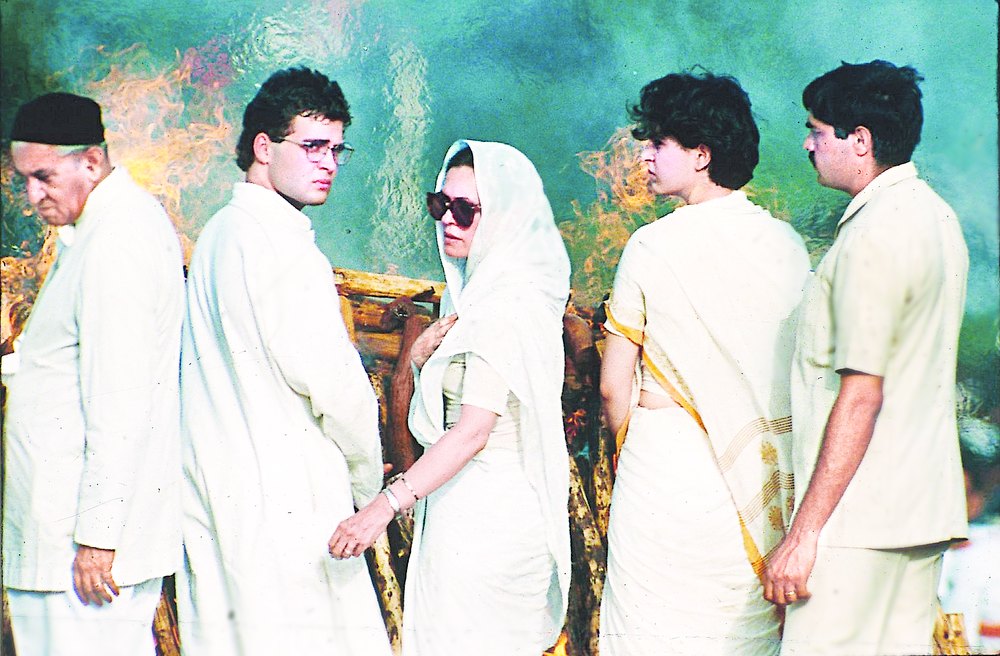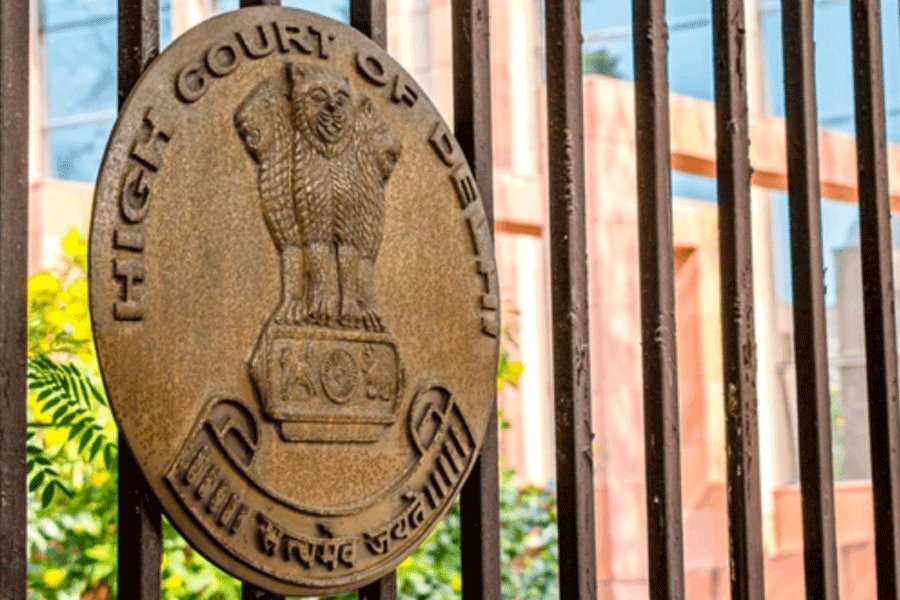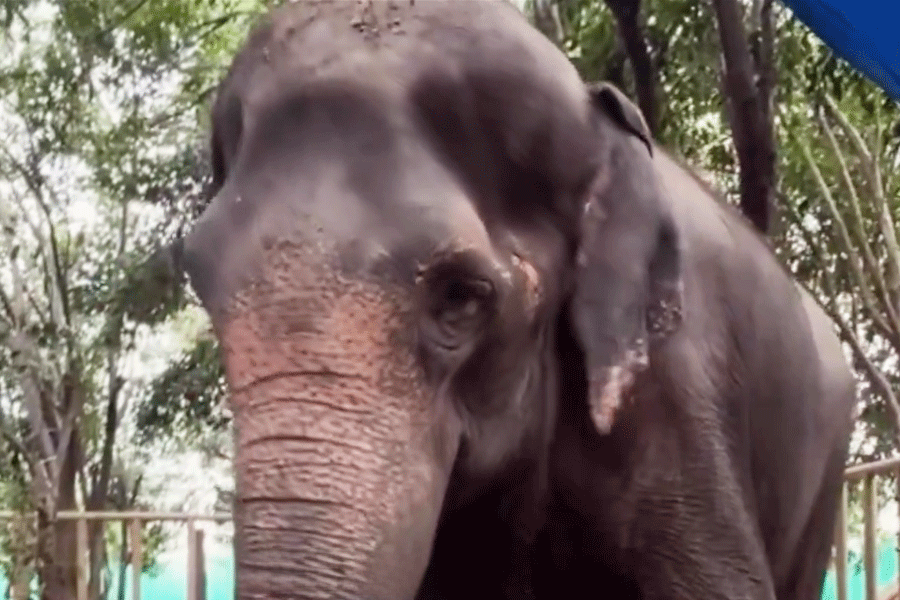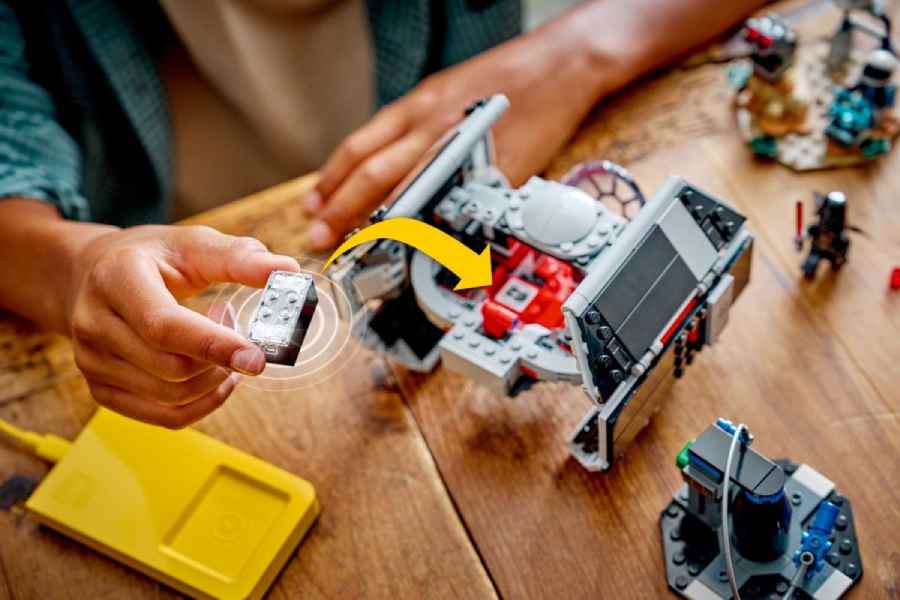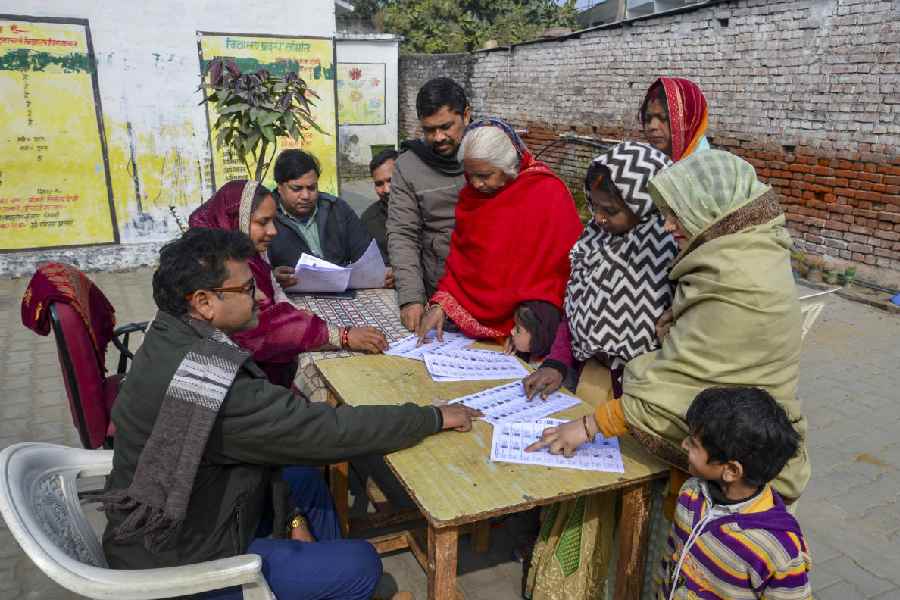
Jayanthi Natarajan (picture below) in 1990 and the Gandhi-Nehrus at Rajiv Gandhi’s funeral in 1991. Jayanthi had escaped the explosion that killed Rajiv, probably because the former Prime Minister asked her to escort two journalists
Chennai, Jan. 30: The southern slash is hurting the Congress not just because of the direct references to Sonia Gandhi and Rahul but also because Jayanthi Natarajan is inextricably associated with one of the most traumatic episodes in the political and personal history of the Nehru-Gandhi family.
Launched by Rajiv Gandhi in politics, it was Jayanthi who had identified the former Prime Minister's remains by his Lotto shoes when he was assassinated in May 1991.
In fact, Jayanthi probably owes her life to Rajiv. It was because Rajiv had asked Jayanthi to escort two journalists closer to the stage at Sriperumbudur in Tamil Nadu that she was not caught in the explosion when the human bomb went off.
Jayanthi did not exaggerate today when she claimed that she had remained with Rajiv's body throughout that night. Later, she suffered a near-nervous breakdown trying to come out of the trauma of that fateful night.
Yet, on Martyrs' Day today, Jayanthi proclaimed becoming a victim to the whimsical ways of Rajiv's son, Rahul.
Nearly three decades ago, Rajiv had plucked her out of nowhere and sent her to the Rajya Sabha in 1986.
When her name was announced as a nominee many had asked 'Jayanthi who?' It later came to be known that her aunt and social worker, Sarojini Varadappan, had been recommended to fill the post but Rajiv wanted someone younger.
According to Congress sources, P. Chidambaram, then a junior minister in Rajiv's team, had suggested the name of Jayanthi, a fellow advocate in Madras High Court, pointing out that she was the niece of Sarojini Varadappan and also an English news reader on Doordarshan, Madras. Rajiv ticked her name.
Jayanthi grew with her new job. Along with Chidambaram and Rangarajan Kumaramangalam, she became the suave English-speaking triumvirate of the Tamil Nadu Congress.
In 1996, she sailed along with G.K. Moopanar when he floated the Tamil Maanila Congress in revolt against P.V. Narasimha Rao's decision to revive ties with a discredited Jayalalithaa for the elections.

When the Tamil Maanila Congress became part of the United Front government, Moopanar rewarded her by making her the civil aviation minister in the short-lived I.K. Gujral government. Later, she rejoined the Congress when the Tamil Maanila Congress was merged with the parent party by G.K. Vasan who had succeeded his late father.
Unlike Vasan, who retained his father's base of loyal lieutenants across the state and flexed it to get his supporters tickets, Jayanthi was mostly a loner with no faction to show off. Her only known supporter is former MLA Gayathri Devi who sat beside her during today's media conference.
But Jayanthi had grabbed national attention by her articulation in front of TV cameras and articles in newspapers and two more return trips to the Rajya Sabha. When she replaced Jairam Ramesh as environment minister, it was solely because of her staunch loyalty to the Gandhis.
Jayanthi's claim to Congress legacy in her family is not understated. Her great grandfather C. N. Kanakasabhapathi Mudaliar, a Congress leader from Tamil Nadu, was a member of the Constituent Assembly.
Her grandfather M. Bhaktavatsalam took over as chief minister from K. Kamaraj in 1963 and was the last Congress chief minister of Tamil Nadu when the DMK grabbed power in 1967. Her aunt Varadappan was a respected Congress leader and a noted social worker.
Today, asked if she felt let down by Sonia and Rahul after being brought to the national limelight by Rajiv, Jayanthi said she was only expressing her anguish as a victim since she had tried a hundred times to meet Rahul.
Jayanthi said she was not planning to join any other party, including the newly floated Tamil Maanila Congress, and she needed time to consider her future.
Jayanthi does not have a phalanx of supporters - only a former MLA is her known loyalist.

